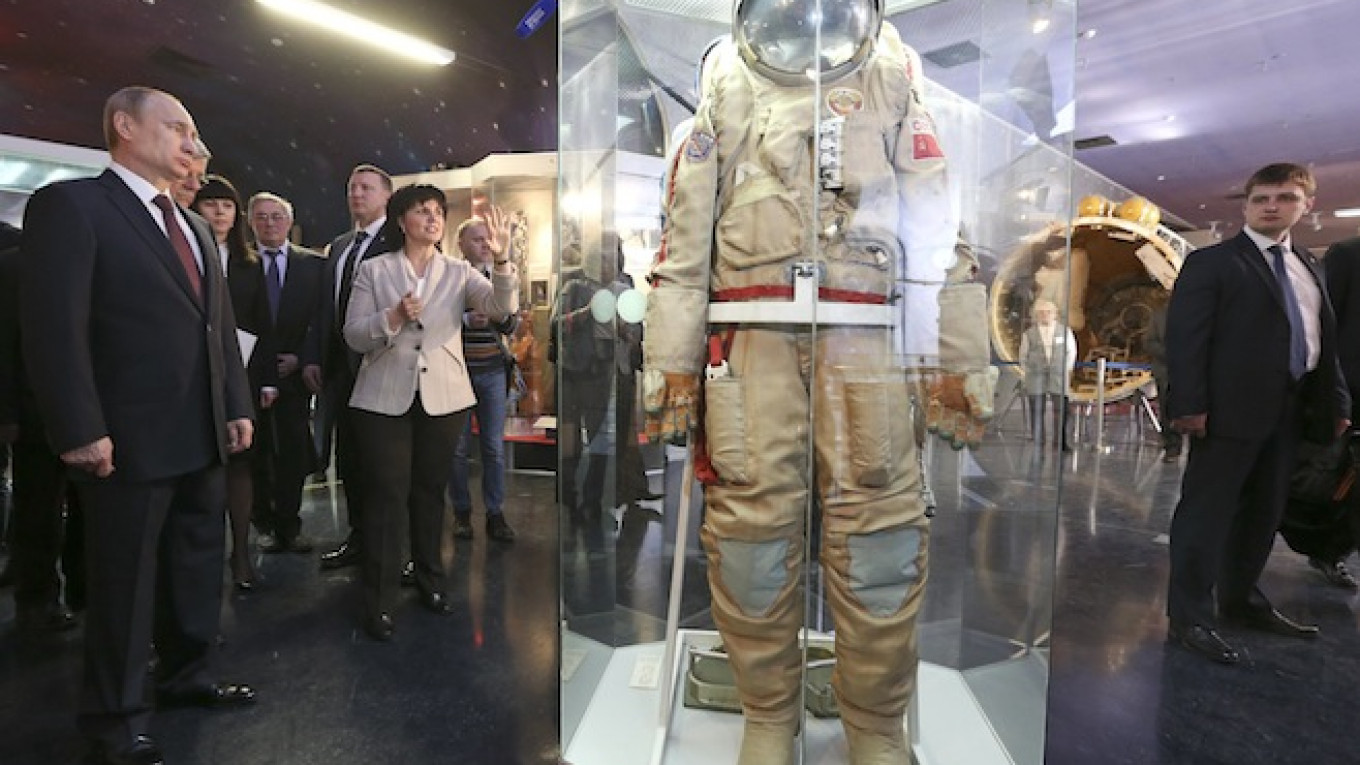Sanctions that the United States has imposed on Russian scientists as retribution for Russia's annexation of Crimea "punish the entire scientific community," a respected business daily reported Friday, citing top Russian physicists.
Last week NASA announced that it was severing ties with Russia, except regarding the International Space Station, and the U.S. Energy Department informed Russia's state nuclear corporation, Rosatom, that it was indefinitely suspending collaboration on peaceful atom projects.
In response, Russia's Education and Science Ministry has called the sanctions "surprising" and warned of retaliatory measures against American scientists conducting research in Russia, the Kommersant newspaper reported.
The U.S. is also preventing Russian scientists from using the Brookhaven National Laboratory in New York, one of the country's largest research centers, and is threatening to discontinue joint projects at the Fermi National Accelerator Laboratory near Chicago, according to several high-ranking scientists at Russia's Institute for Theoretical and Experimental Physics, or ITEP.
"Russian physicists have made a vast contribution to the work of the Brookhaven laboratory, such as a gamma-ray detector" for its heavy-ion collider, said ITEP lab director Vladimir Obraztsov. "Now our scientists have to analyze the data, and if they will not be allowed in the lab, then this would harm the entire international scientific collaboration, involving 11 countries."
NASA is also disallowing its employees from "traveling to Russia … or emailing or holding teleconferences with their Russian counterparts because of Russia's actions in Ukraine," The Associated Press reported last week, citing a memo sent to employees.
However, a NASA spokesman told Bloomberg last week that space-related collaboration may be extended beyond the International Space Station on a "case-by-case basis."
NASA has relied on Russian rockets to transport astronauts to the space station since it canceled its Space Shuttle program in 2011.
Last year about 6,700 Russian scientists and other researchers traveled to the United States, and the previous year more than 2,000 Russians were working in U.S. laboratories on a "permanent basis," the Kommersant report said.
A Message from The Moscow Times:
Dear readers,
We are facing unprecedented challenges. Russia's Prosecutor General's Office has designated The Moscow Times as an "undesirable" organization, criminalizing our work and putting our staff at risk of prosecution. This follows our earlier unjust labeling as a "foreign agent."
These actions are direct attempts to silence independent journalism in Russia. The authorities claim our work "discredits the decisions of the Russian leadership." We see things differently: we strive to provide accurate, unbiased reporting on Russia.
We, the journalists of The Moscow Times, refuse to be silenced. But to continue our work, we need your help.
Your support, no matter how small, makes a world of difference. If you can, please support us monthly starting from just $2. It's quick to set up, and every contribution makes a significant impact.
By supporting The Moscow Times, you're defending open, independent journalism in the face of repression. Thank you for standing with us.
Remind me later.






